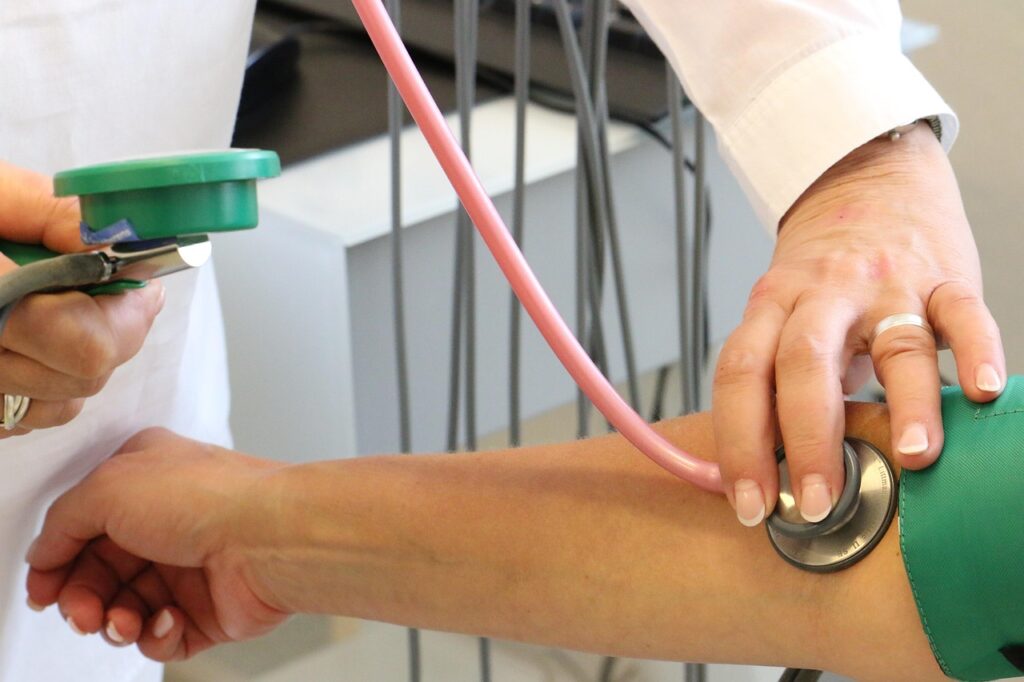Break free from dependence on a treatment drug
Overcoming Methadone Addiction
While methadone is often used to treat opioid addiction, long-term use or misuse can lead to its own form of dependency. At Quadrant Health, we understand the complex nature of methadone addiction and provide a clear path forward with medical detox, behavioral therapy, and relapse prevention strategies tailored to your needs.
Dependent on methadone? At Quadrant Health, we provide safe, supportive treatment options to help you heal.
When treatment becomes addiction, get help
What is methadone addiction?
Methadone is a synthetic opioid often prescribed as part of medication-assisted treatment (MAT) to manage withdrawal symptoms and reduce cravings for more potent opioids. However, because it activates the same brain receptors, it can become addictive if misused. Methadone addiction occurs when a person becomes physically or psychologically dependent, requiring increasing doses to function or avoid withdrawal. A 2021 SAMHSA report found that nearly 300,000 people were receiving methadone treatment for opioid addiction in the U.S., and misuse can lead to dangerous side effects, including respiratory depression and overdose. Recovery from methadone addiction requires medical supervision and an individualized treatment plan to safely detox and transition into maintenance care.

the signs of methadone addiction
Methadone misuse can result in subtle and progressive symptoms. Those affected may develop a dependency over time, showing behavioral, cognitive, and physical warning signs. Common signs of methadone addiction include:
- Persistent drowsiness and fatigue
- Difficulty concentrating or confusion
- Neglect of responsibilities and hygiene
- Increased tolerance and need for higher doses
- Slurred speech or impaired coordination
- Continued use despite negative consequences
If you recognize these signs in yourself or someone close, reach out to our team for help today.
Common causes of methadone addiction
Risk factors for methadone addiction often overlap with other opioid-related disorders. Long-term use of methadone without consistent medical oversight can increase vulnerability, especially when dosage adjustments aren’t monitored. Individuals with a past history of substance misuse, mental health conditions such as PTSD or anxiety, or social isolation may face a higher risk. Accessing methadone through illicit means or deviating from prescribed guidelines also raises the likelihood of dependency.
Addressing these contributing factors is vital to successful treatment and recovery.
Fighting methadone addiction: success stories
Our clients share their experiences in battling methadone addiction and the impact that compassionate, professional care had on their path to recovery.
the dangers of cocaine Addiction
The full impact on your life
Health & social risks
While Methadone is often used for opioid treatment, long-term misuse can cause significant harm. Health risks include respiratory depression, hormonal imbalance, liver toxicity, and heart rhythm issues such as QT prolongation. Methadone can impair cognition, motor function, and emotional regulation. Socially, users often struggle to maintain employment or relationships due to dependency and sedation. The stigma around methadone misuse can also lead to isolation and decreased access to support systems.


Methadone Overdose, what do do
Methadone overdose is especially dangerous due to the drug’s long half-life and delayed effects. Unlike other opioids, methadone stays in the body much longer, which can lead to unintentional buildup and toxicity, particularly when someone takes multiple doses close together or mixes it with sedatives like benzodiazepines or alcohol. Symptoms of overdose often begin subtly and may include extreme drowsiness, slow or shallow breathing, pinpoint pupils, cold or clammy skin, and bluish lips or fingertips. In severe cases, breathing can stop entirely, leading to brain damage or death. Because methadone’s effects can take hours to fully peak, individuals may mistakenly think they are safe after taking it, only to experience respiratory failure later.
If you suspect an overdose, call 911 immediately and administer naloxone (Narcan) if available. Stay with the person, monitor their breathing, and do not leave them alone until emergency help arrives.
WHY METHADONE DETOX SHOULD BE MEDICALLY MANAGED
Detoxing from methadone can be far more complex than detoxing from other opioids due to its slow-acting properties and long half-life. Many individuals underestimate the intensity and duration of withdrawal symptoms, which can begin slowly but last for several weeks or more. Without medical supervision, withdrawal can become both physically and emotionally overwhelming, increasing the risk of relapse or complications.
Common methadone withdrawal symptoms
Methadone withdrawal shares similarities with other opioids but often presents with more drawn-out and unpredictable symptoms.
- Mild symptoms: Appear within 24–48 hours and include restlessness, sweating, yawning, chills, and mild anxiety.
- Moderate symptoms: Typically emerge by day 3 and may include nausea, vomiting, muscle and joint pain, rapid heartbeat, irritability, and drug cravings.
- Severe symptoms: In some cases, individuals experience insomnia, abdominal cramping, tremors, depression, and even suicidal thoughts, especially without therapeutic support. These symptoms can last up to three weeks or longer due to methadone’s extended presence in the body.
Some of these symptoms can become overwhelming quickly. This is why medical supervision during detox is essential.
The phases of methadone withdrawal
Methadone withdrawal occurs gradually, making it harder to anticipate and manage without professional guidance.
Initial phase
Appears within a few hours to 1–2 days, and is marked by mild flu-like symptoms, and anxiety begins as the drug starts to leave the system.
Peak phase
Occurs typically on days 3–10, and symptoms intensify as the drug fully clears, with severe discomfort, restlessness, and emotional instability.
Prolonged phase
Can last up to a few weeks, comes with depression, fatigue, cravings, and disrupted sleep may linger. Post-acute withdrawal symptoms (PAWS) are common.
Trust quadrant to detox from methadone safely
Our clinical detox program is tailored to the unique challenges of methadone withdrawal. We provide:
24/7 monitoring by clinical staff
Round-the-clock supervision ensures your safety, manages complications early, and provides peace of mind during the stages of withdrawal.
Medication-assisted treatment (MAT)
Medications may be prescribed to ease the discomfort of methadone withdrawal and prevent dangerous symptoms. This helps stabilize the nervous system.
hydratation, nutrition and sleep support
It often disrupts sleep and appetite. We help rebalance your body with proper hydration, healthy meals, and sleep-focused care to promote healing.
Mental health and emotional support
Our licensed professionals are here to help you manage anxiety, mood swings, and psychological stress, providing stability during the process.
Full-Spectrum Methadone Addiction Care
Seamless support from withdrawal to long-term recovery.
Overcoming methadone addiction requires consistent, coordinated care across every stage of the recovery process. At Quadrant Health, we provide a complete in-house treatment model, allowing you to detox, stabilize, and heal in a single trusted environment. Our team stays with you throughout the journey, helping you build momentum, avoid gaps in care, and stay focused on lasting sobriety.
Detoxification
Residential Inpatient
Partial Hospitalization
Intensive Outpatient
Virtual Intensive Outpatient
Dual Diagnosis
Why Quadrant health?
At Quadrant, your recovery is our priority. We combine proven clinical expertise with compassionate care to guide you through every stage of methadone addiction treatment. Our experienced team of licensed professionals creates personalized plans that integrate evidence-based therapies, holistic modalities, and dual diagnosis support when needed. With luxury, well-equipped facilities and a supportive, judgment-free environment, we offer more than just methadone addiction rehab. We offer a path to lasting transformation. Here, you’ll find the structure, flexibility, and care needed to rebuild your life, your way.
Explore:
Therapies we offer:
Frequently asked questions
What is methadone and why is it addictive?
Methadone is a long-acting opioid used to treat pain or opioid dependence. When misused or taken long-term without supervision, it can lead to physical dependence and addiction.
How do I know if I’m addicted to methadone?
Signs of methadone addiction include needing higher doses for the same effect, withdrawal symptoms between uses, and continued use despite negative consequences.
Is methadone withdrawal dangerous?
Yes. Methadone withdrawal can be prolonged and severe, requiring medical supervision to manage symptoms and avoid relapse.
How long does methadone withdrawal last?
Withdrawal symptoms typically begin within 24–48 hours and can last up to several weeks due to methadone’s long half-life.
Can I detox from methadone at home?
Detoxing from methadone at home is not recommended. Supervised medical detox is safer and more effective in managing symptoms and preventing complications.
Can I switch from methadone to another treatment medication?
Yes, in some cases patients are transitioned from methadone to buprenorphine or other medications under clinical supervision.
What treatments are available for methadone addiction?
Treatment may include medical detox, residential and/or partial hospitalization, outpatient, individual therapy, group counseling, and long-term relapse prevention strategies.
Will I feel pain during methadone detox?
Some discomfort is expected, but medical support can significantly reduce symptoms and improve your comfort during the process.
Is methadone addiction common?
Yes. While methadone is used therapeutically, dependence and addiction are common when it’s misused or taken long-term without proper oversight.
What if I have a co-occurring mental health issue?
Quadrant Health specializes in dual diagnosis treatment, offering integrated care that addresses both substance use and mental health disorders together for better outcomes.
Does insurance cover methadone addiction treatment?
Most insurance plans cover methadone detox and addiction treatment. We can help verify your coverage and benefits.
